Ripple effect of millennials not buying homes is destroying these unsung hero industries
The ripple effect of millennials not buying homes in America is the destruction of several unsung hero industries.
Businesses that rely on homeowners spending their extra money on furniture and DIY tools have struggled as a result of the trend, as sales of existing homes last year reached their lowest level since 1995.
Retailers announced more store closures than openings in 2024 for the first time in two years, according to data from Coresight Research shared with the Wall Street Journal.
Last year, there were about 1,400 more store closures than openings through Dec. 27, the data insights company said.
Meanwhile, there were 51 retail bankruptcies in 2024, up from 25 the year before.
Home furnishings retailers such as Big Lots and Conn’s were among those who filed for bankruptcy, while announcing plans to close hundreds of stores across the US.
The lack of home sales has also pushed some already struggling businesses over the edge, according to the WSJ.
LL Flooring filed for voluntary Chapter 11 reorganization proceedings in August.
Big Lots begins out-of-business sales at all its U.S. stores
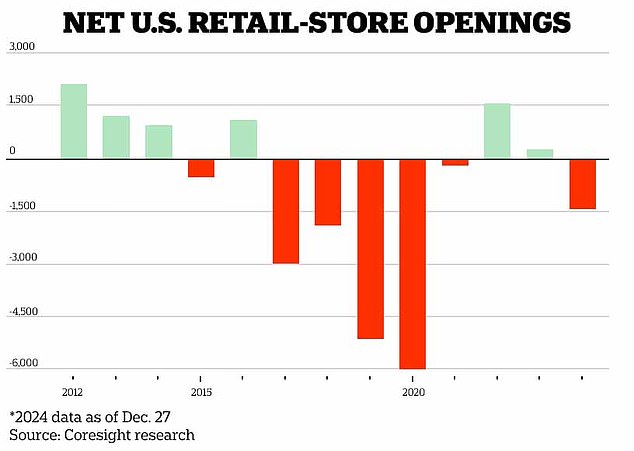
Last year, through December 27, there were approximately 1,400 more store closures than openings

It comes as purchases of previously owned homes are expected to reach their lowest level in almost 30 years by 2024
“Flooring is a hugely popular project if you’re getting your home ready to sell or if you’ve just moved into a home,” Peter Keith, senior analyst at financial services firm Piper Sandler, told the WSJ. “It’s hugely influenced by housing turnover.”
According to the WSJ, a private equity firm bought part of LL Flooring in October, but is still closing more than 200 stores – about half of its total inventory.
Purchases of previously owned homes are expected to reach the lowest level in almost 30 years by 2024.
This trend is likely to be exacerbated by rising mortgage rates, which will further slow sales activity in the coming months.
High interest rates and inflation are also responsible for declining sales of household goods.
Even bosses of hardware stores that managed to weather the storm, such as Lowe’s and Home Depot, said they’ve noticed a change in purchasing behavior.
Customers are pulling back from domestic project and luxury spending, forcing retailers to supply more essential goods instead.
Something that makes the decline in furniture sales harder to bear for retailers is the fact that they experienced the opposite effect during the coronavirus pandemic.
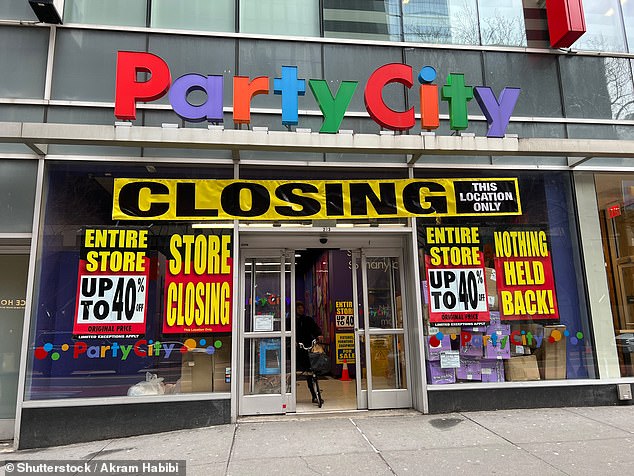
Party City will immediately close all of its stores, ending nearly forty years of existence
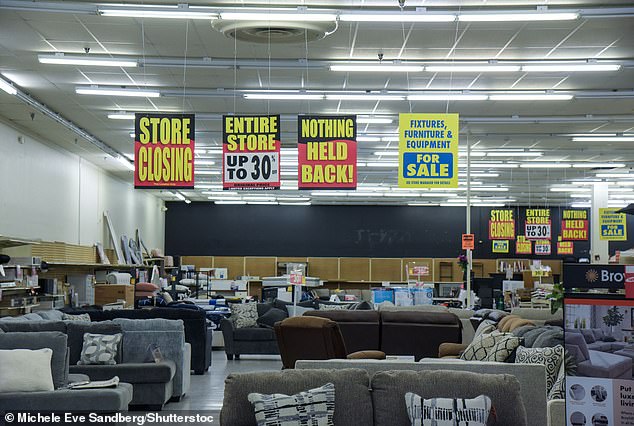
Businesses that rely on homeowners spending their extra money on furniture and DIY tools are struggling because millennials aren’t buying homes
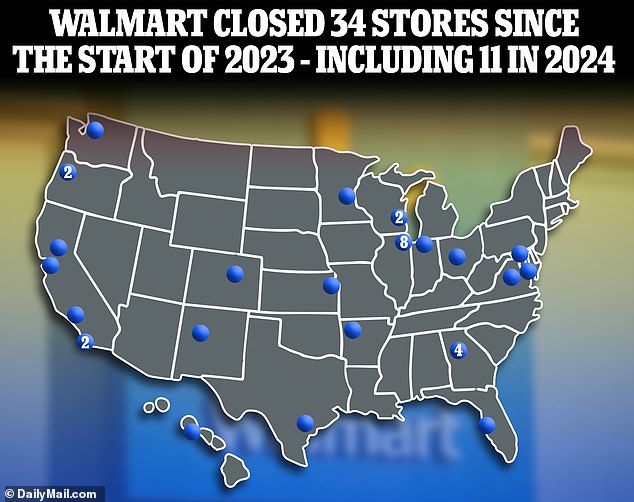
Pictured: All Walmart stores closed in 2023 and 2024
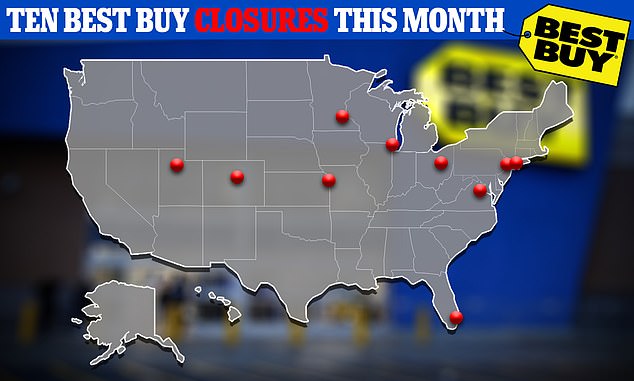
Pictured: The Best Buy locations that closed in the past month alone
Americans flocked to outfit their homes as they spent more time indoors during lockdowns.
“Consumers have since turned to services,” Brandon Svec, national director of U.S. retail analytics for data firm CoStar Group, told the WSJ. ‘We only need a limited number of banks.’
Pharmacies also closed thousands of stores, while CVS, Rite Aid and Walgreens each closed hundreds of locations, partly due to competition from online shopping.
And the closures keep coming: Party City announced in late December that it would close all of its approximately 700 stores by the end of February.
Meanwhile, American department store Macy’s will close 65 stores within weeks.
In February, the embattled retailer announced plans to close 150 underperforming stores within three years, including 55 closures by the end of 2024.
